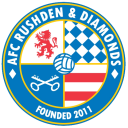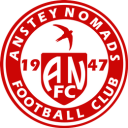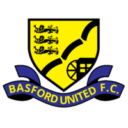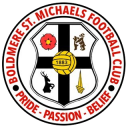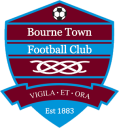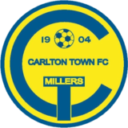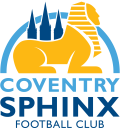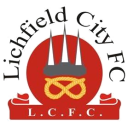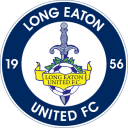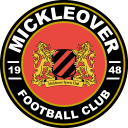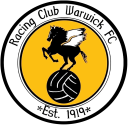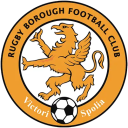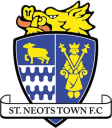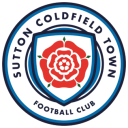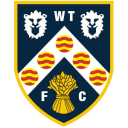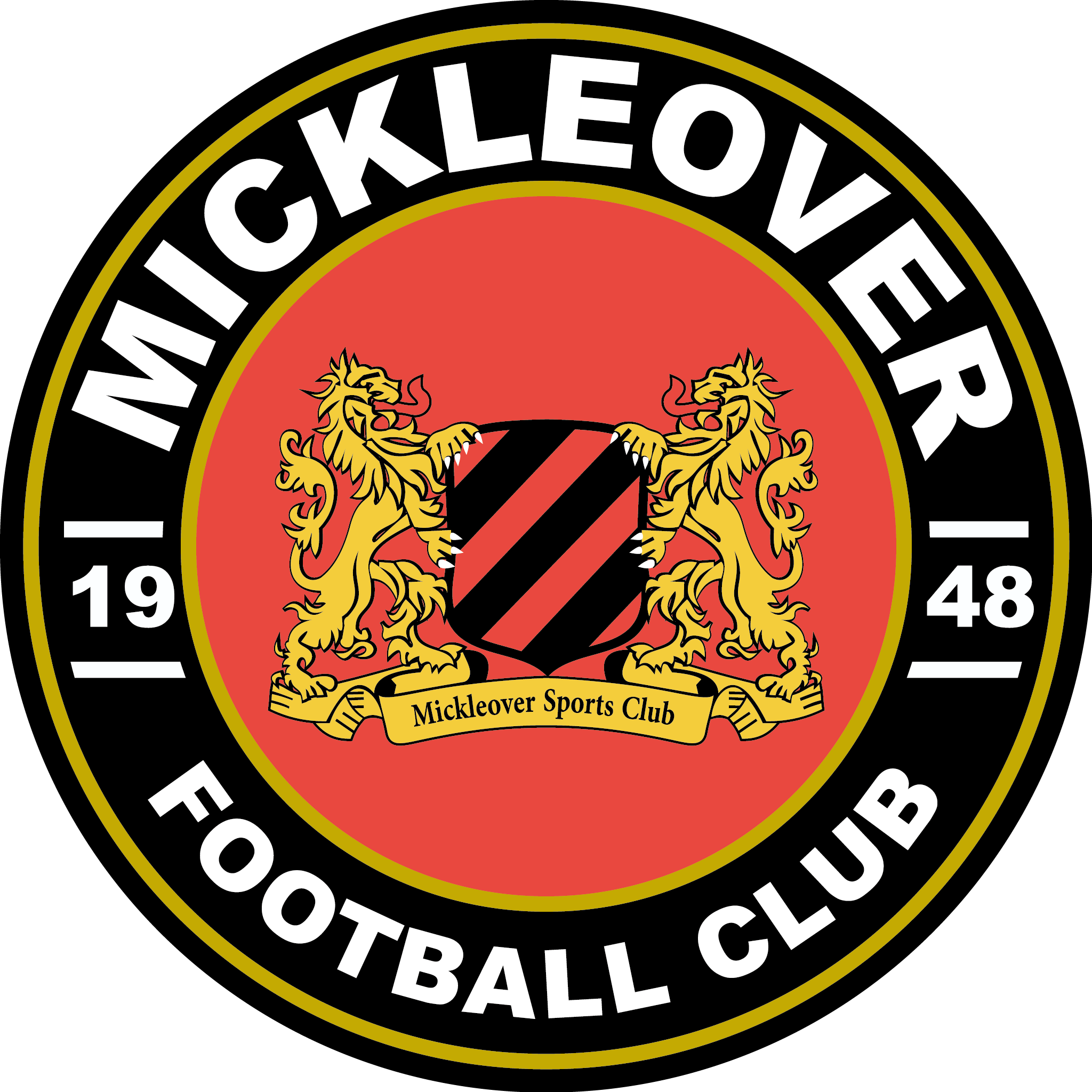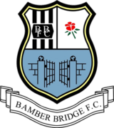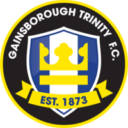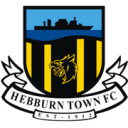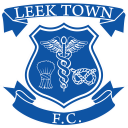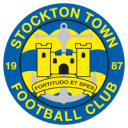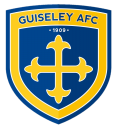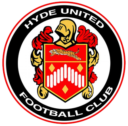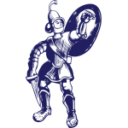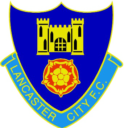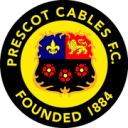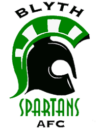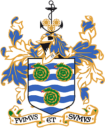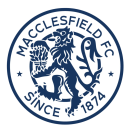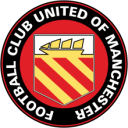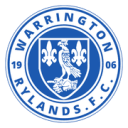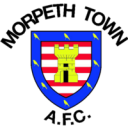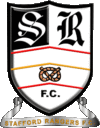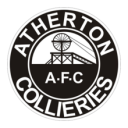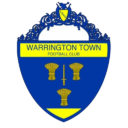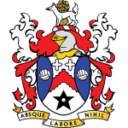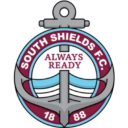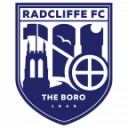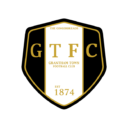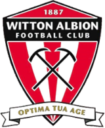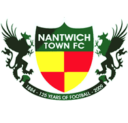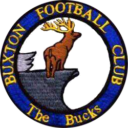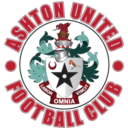
The club was originally founded in 1878 as Hurst Football Club and the earliest known match report dates back to a game against Hurst Red Star on 16 March 1879.[2] They originally played in black-and-white stripes and were nicknamed the Lambs.[3] The club first entered the FA Cup in 1883, beating Turton 3–1 in the first round, and then Irwell Springs 3–2 in the second. However, the result was annulled after a protest from Irwell,[4] and it was they who advanced to the third round after Hurst refused to play the replay.[5] In 1885 they won the first edition of the Manchester Senior Cup, beating Newton Heath (now Manchester United) 3–0 in the final.[3] In the same year they reached the second round of the FA Cup again.[4]However, although they defeated Halliwell 3–1, the result was annulled again. Ashton refused to play the replay and Halliwell advanced to the third round.[6]
They joined the Ashton & District League in 1891, but after finishing ninth in the league in the 1891–92 season, it was reported in June 1892 that the club had folded.[2] They were reformed in 1909, and were admitted to the Manchester League as it was expanded from 16 to 18 clubs.[7] In their first season in the league, they finished level on points at the top of the table with Salford United, resulting in a play-off for the championship, which Salford won 2–1.[7][4]
After finishing sixth in 1910–11, Hurst won the title in 1911–12 and subsequently joined Division Two of the Lancashire Combination.[7][8] Although they only finished fifth in 1912–13, they were promoted to Division One of the league for the 1913–14 season. Due to the outbreak of World War I, the club did not compete in 1915–16, but re-entered a wartime edition of the league for the 1916–17 season, winning the title.[9] However, they did not compete during the following season. They resumed in the Lancashire Combination in 1918–19,[9] but switched to the Cheshire County Leaguein 1923.[10] Players started wearing red shirts, earning the club a new nickname – the Robins.[3]
Shortly before World War II, the club signed Dixie Dean, but the outbreak of hostilities limited him to a handful of appearances for the club.[3] Following the war, the club resumed playing in the Cheshire County League for the 1945–46 season,[8] changing their name to Ashton United on 1 February 1947.[4] Despite finishing second bottom of the league in 1946–47, they applied for election to the Football League, but the four Football League clubs were re-elected without a vote being taken.[11] They subsequently rejoined the Lancashire Combination in 1948 and were placed in Division One.[10]
After finishing twelfth in 1960–61, the club resigned from the league in order to apply to rejoin the Cheshire County League; in a ballot, they defeated by Altrincham and Wigan Athletic, and so had to rejoin the Lancashire Combination. However, Division One was now full, so the club had to drop into Division Two,[12] which they won in 1961–62 to earn promotion back to Division One.[10]
In 1964 the club switched to the Midland Counties League, where they played for two seasons before moving back to Division Two of the Lancashire Combination in 1966.[10] Two seasons later, they moved across to the Cheshire County League, where they remained until it merged with the Lancashire Combination to form the North West Counties League in 1982.[10] The club were placed in Division One of the new league, but were relegated to Division Two after finishing second-from-bottom in 1983–84. After winning Division Two in 1987–88 they were promoted back to Division One.
The 1991–92 season saw the club win the Division One title, earning promotion to Division One of the Northern Premier League.[10] They remained in the division until a third-place finish in 2001–02 saw them qualify for the promotion play-offs. After a 3–1 win over Spennymoor United in the semi-finals, a 2–1 win over Bamber Bridge in the final saw them promoted to the Premier Division. During the season, Ashton’s Gareth Morris scored one of the fastest goals in FA Cup history, netting after only four seconds against Skelmersdale United.[13]
With the creation of the Conference North in 2004, a 14th-place finish in 2003–04 saw the club play-off against Hyde United and Bradford Park Avenue for the right to play in the new league. Following a 2–1 win over Hyde, they lost 2–1 to Bradford Park Avenue in the final. However, after Hucknall Town were denied promotion due to ground grading issues, Ashton took their place in the Conference North.[14] The following season saw them finish second-from-bottom, resulting in relegation back to the Northern Premier League’s Premier Division.[10] In 2010 the club were ordered to pay £32,000 to Marcus Hallows after he was injured playing against Ashton for Altrincham.[15]
In 2011 the club won the Northern Premier League Challenge Cup, beating Northwich Victoria 1–0 in the final. After finishing fifth in 2013–14 the club qualified for the promotion play-offs; however, after beating FC United 2–1 after extra time, they lost the final to AFC Fylde on penalties after a 1–1 draw.[16] The 2014–15 season saw a third-place finish, again qualifying for the promotion play-offs, in which they lost on penalties to local rivals Curzon Ashton after a 1–1 draw.[17] A third consecutive play-off campaign followed a fourth-place finish in 2015–16, but saw the club lose 3–1 to Salford City in the semi-finals.[18]
Credit: Wikipedia.com
- Leagues
- BetVictor NPL Premier Division, NPL Premier Division
- Seasons
- 2016/17, 2017/18, 2019/20, 2020/21, 2021/22, 2024/25
- Home
- Hurst Cross
